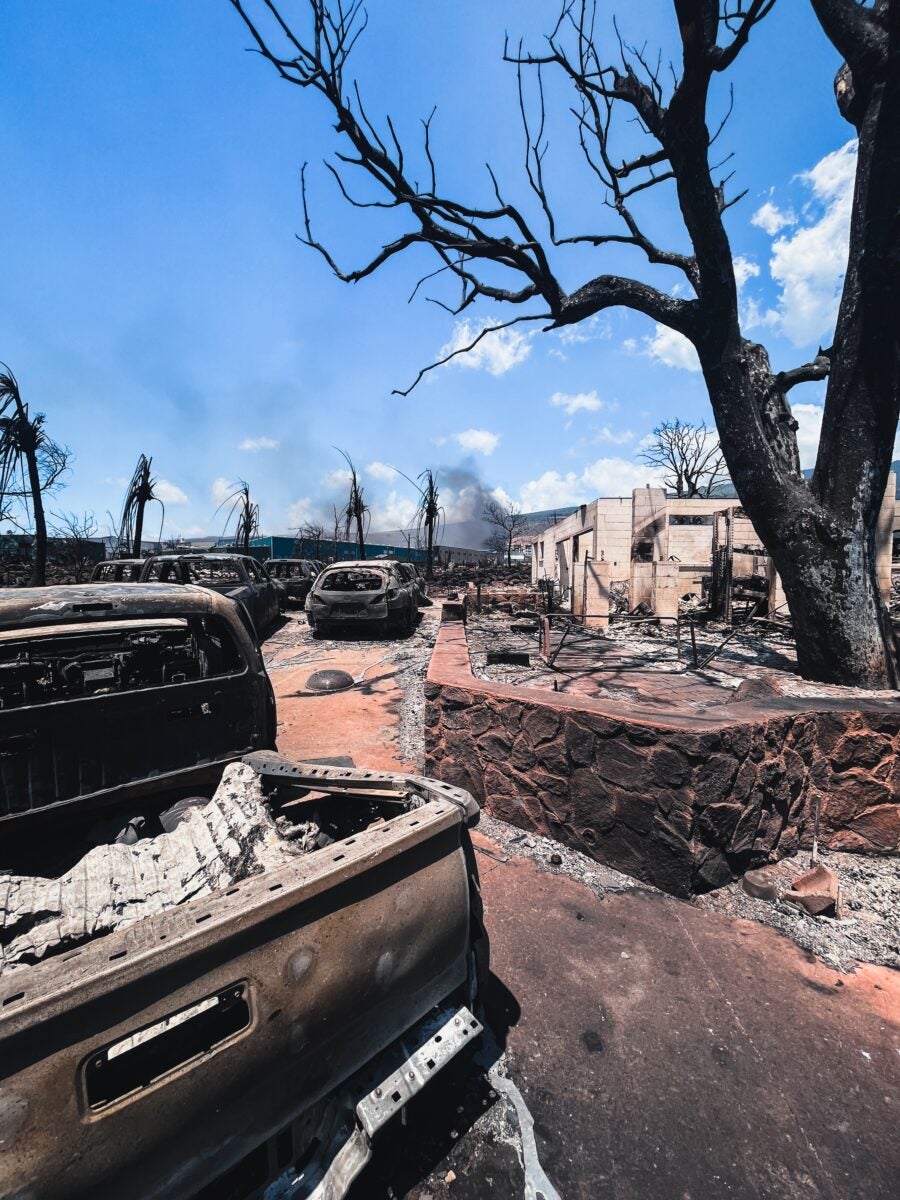The distribution points around the Hawaiian island of Maui are overwhelmed with food, water and other personal effects and do not need any more donations of such items, the executive director of the nonprofit humanitarian logistics group American Logistics Aid Network (ALAN) said Friday.
In an interview with FreightWaves, Kathy Fulton debunked reports on social media that survivors of the wildfires that ravaged the western part of Maui earlier this month are lacking food, water and other basic necessities. Some may have trouble accessing certain supplies, but there is no shortage of goods to meet daily requirements, she said.

On the contrary, relief officials have been forced to halt distributions at some locations just to sort through what people have brought, she said. In some cases, containers stuffed with goods are taking longer than expected to unload and return empty because there is no room at the destinations to place the cargo. In particular, there has been an “abundance” of dog food donations.
“The generous, well-meaning donations are disrupting the supply chain of human food,” she said.
The situation on the ground in the western part of the island appears to affirm ALAN’s advice that people avoid sending supplies and instead make cash donations on the front end, or wait until recovery efforts are finished before donating more goods. The affected area remains in “active incident” status as officials look to recover the remains of victims of the Aug. 8 coastal blaze that has already claimed 115 lives. Authorities on Friday released the names of 388 people still unaccounted for.
The wildfires, spawned by drought conditions and fanned by high winds from an offshore hurricane, razed most of the historic town of Lahaina. It may take many years to restore the town to its prior appearance given the large number of ancient structures and artifacts that were destroyed.
ALAN has been working with the state of Hawaii’s donations task force to assist with two startup warehousing operations — one on Oahu and the other in California — to help secure, store and eventually stage the mountains of unsolicited product donations they have received. These items need to be securely stored, sorted and put to use at the right time, place and location, the group said.
Additional warehouses will eventually be needed to store the influx of supplies, Fulton said, explaining that what will be needed sooner rather than later are wheelchairs and other durable medical equipment.
By volume, most relief supplies have been shipped by ocean from the mainland to Honolulu harbor, where they are transhipped by interisland barge to Maui. Goods are also being shipped by air to Maui’s Kahului Airport.
Soon after the wildfires subsided, ALAN began contacting many of the businesses that already had products on Maui or other nearby islands to try to match them with organizations that needed them. ALAN also created a logistics work group for the Hawai’i VOAD (Voluntary Organizations Active In Disasters). Its role as the group’s leader is to help identify short- and long-term needs and capabilities in order to reduce confusion, eliminate gaps and minimize duplication of effort.
ALAN requested that companies or individuals willing to donate warehouse space, trucks, equipment or supplies do so now.
“We’ll need a lot of support on both the islands and on the mainland,” it said in a communique earlier this week. “The more advance information we have about available resources, the more quickly we’ll be able to fulfill requests for assistance and get survivors the help they need.”







